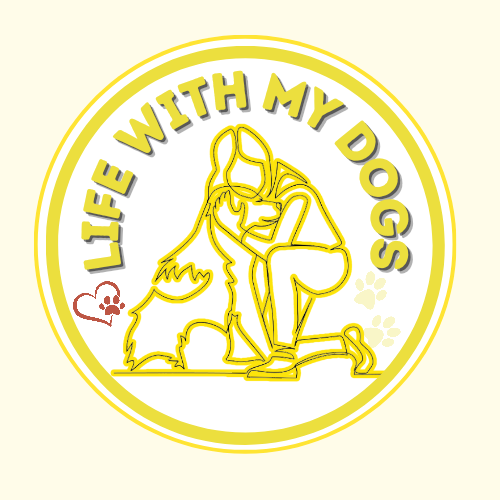LifeWithMyDogs is supported by our audience. When you purchase through one of our links, we may earn a small affiliate commission. As an Amazon Associate I earn from qualifying purchases. Your cost is not affected.
**********
Getting a second dog is a decision that once filled me with second thoughts. I wondered if the extra responsibility, cost, and commitment would be worth it. But in the end, I took the leap, and the experience taught me so much about multi-dog life that I want to share with you in this article.
From the pros and cons to tips on making the transition smoother, I’ll cover some of the most important things to think about when considering a second dog. Whether you’re ready for this step or still on the fence, I hope my experiences offer you some valuable insights.
Getting a Second Dog, Pros and Cons: Is Your Home Ready for a Furry Friend?
Our family always has several dogs. With a big family, that works well for us. But for someone with one dog, it may seem daunting to add a second dog. However, if you have the resources for adding another family member, I recommend considering it.
Getting a second dog can be an exciting idea. Many pet owners think about adding another furry friend to their family. It’s a big choice that needs careful thought.

Adding a second dog can bring more joy and companionship to your home, but it also means more work and costs. You’ll need to think about things like vet bills, food, and training time. It’s not just about doubling the fun – it’s about doubling the responsibility too.
Before you decide, it’s good to look at both the good and not-so-good parts of having two dogs. This can help you make the best choice for you and your current pet. Let’s look at some pros and cons of getting a second dog.
Key Takeaways
- Getting a second dog means more love but also more work and costs
- Your first dog might enjoy a new friend, but it could also cause stress
- Think about your time, space, and money before adding another dog to your family
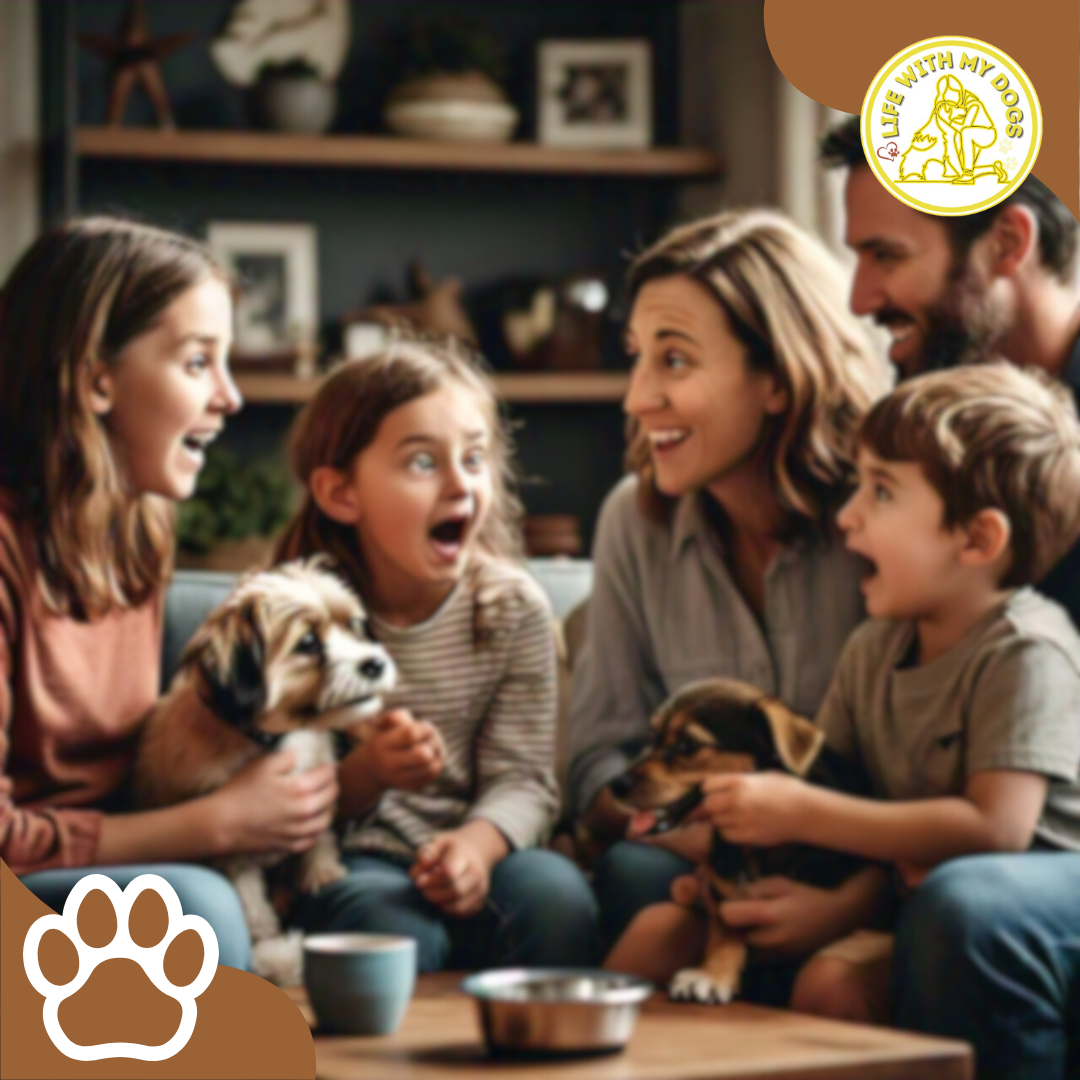
Understanding the Commitment

Getting a second dog is a big decision. It means more love and fun, but also more work and responsibility. Let’s look at what you need to think about before bringing home a new furry friend.
Long-Term Commitment
Getting a second dog is not just for a few weeks or months. It’s for years to come. You’ll need to care for your new pup for its whole life. This means:
• Daily walks • Regular vet check-ups • Feeding and grooming • Training and playtime
Think about your future plans. Will you have time for two dogs in 5 or 10 years? Can you handle double the work that comes with two pets?
Remember, dogs can live 10-15 years or more. Make sure you’re ready for this long-term promise before you bring a new dog home.

Preparation for a New Canine Companion
Before you get a second dog, you need to get ready. Here’s what you should do:
- Make space in your home for another dog bed and crate.
- Buy extra food, toys, and supplies.
- Find a good trainer to help with introductions.
- Set up a separate feeding area for each dog.
You’ll also want to think about your current dog. How will they feel about a new friend? Some dogs love company, while others prefer being alone.
Consider your budget too. Two dogs mean twice the costs for food, vet bills, and other expenses. Make sure you can afford it before you commit.
Benefits of Adding a Second Dog

Getting another dog can make your home happier and more fun. It’s good for you and your first dog in many ways.
Companionship for Your Pet
Dogs are social animals. They love having friends around. A second dog can be a great buddy for your first pet. Your dogs will play together and keep each other company when you’re not home.
This can help if your first dog gets lonely or anxious when alone. They’ll have a friend to hang out with all day. Your dogs might even snuggle up together for naps.
Having a friend can make your first dog more confident and relaxed. They’ll learn from each other and share new experiences.
Double the Fun, Twice the Love
Two dogs mean twice the wagging tails and happy greetings when you come home. You’ll have double the cuddles and kisses too.
Watching two dogs play together is super fun. They’ll chase each other, wrestle, and share toys. It’s like having a non-stop comedy show in your house.
You can take both dogs on walks and to the park. They’ll have a blast running around together. Plus, you’ll get more exercise too.
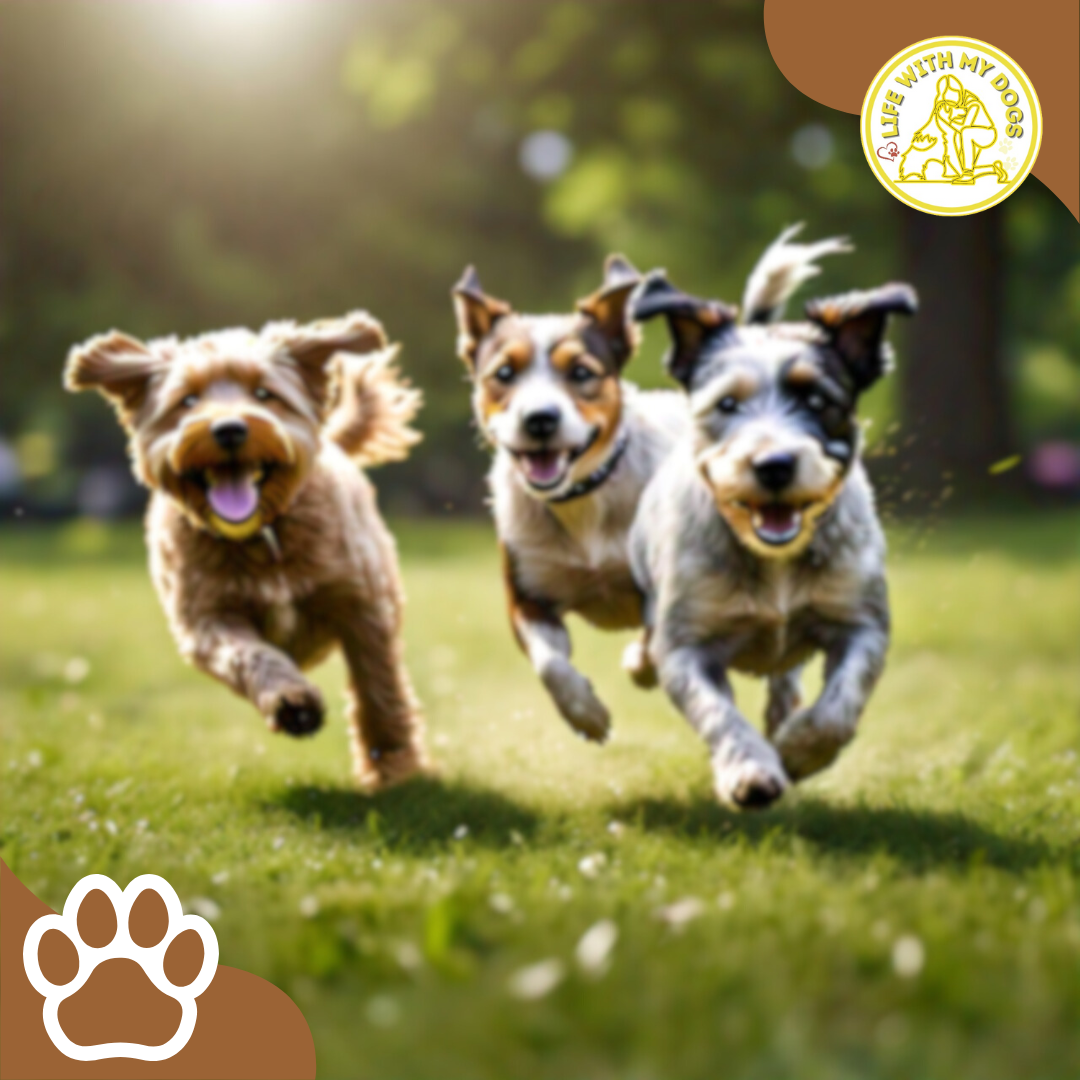
Mental Stimulation and Security
Dogs learn a lot from each other. A second dog can teach your first dog new tricks and behaviors. This keeps their minds active and sharp.
Two dogs can make your home feel safer. They’ll alert you to any strange noises or visitors. Having multiple dogs can provide comfort if you live alone or in a quiet area.
Your dogs will keep each other busy when you’re not around. This can stop boredom and bad behavior like chewing on furniture.
Here’s a quick list of mental benefits:
- Learning new skills from each other
- Staying active with play
- Less boredom and destructive behavior
- Increased alertness to their surroundings
Challenges to Expect

Getting a second dog can bring new joys and also some hurdles. You’ll need to balance family needs, train two pups, and watch for anxiety issues.
Considering Family Dynamics
Adding a new dog can shake up your home life. You’ll need to think about how it affects everyone. Kids might fight over who gets to play with which dog. Your first dog may feel jealous of the newcomer.
Space can be an issue too. Two dogs need more room to play and rest. You might have to rearrange furniture or find a bigger yard.
Time is another factor. Each dog needs attention and care. You’ll have to split your time between them. This can be tough if you’re already busy.
Money matters too. Two dogs mean double the food, vet bills, and toys. Make sure your budget can handle it.
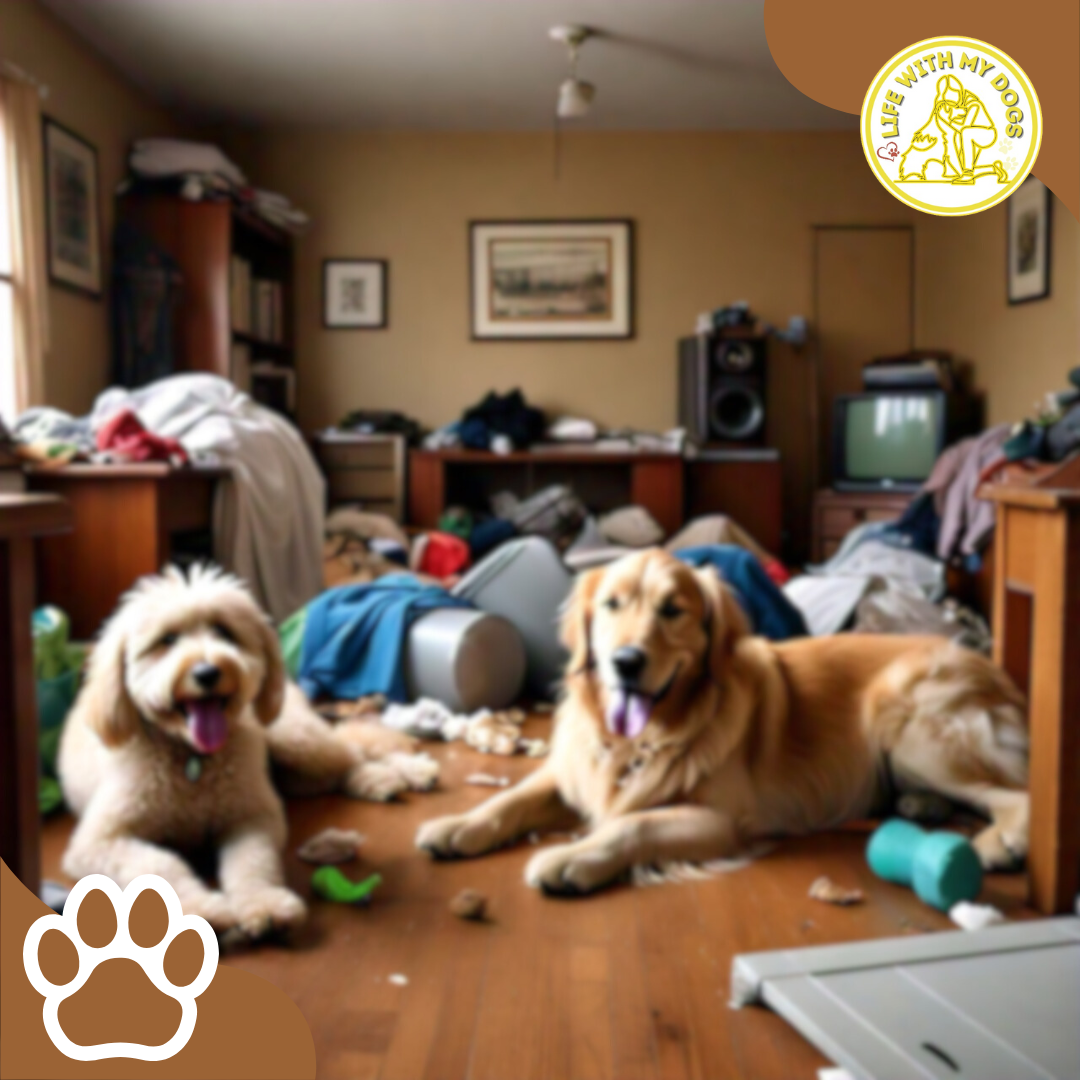
Training Two Dogs
Training two dogs can be tricky. You’ll need to teach them both good habits. This takes more time and patience.
Here are some tips:
- Train dogs separately at first
- Use different commands for each dog
- Be consistent with rules for both
You might face twice the work when it comes to housebreaking. Older dogs can sometimes pick up bad habits from puppies.
Leash training can be hard with two dogs. They might pull in different directions. You’ll need to teach them to walk nicely together.
Remember, each dog learns at its own pace. Don’t compare them or get frustrated if one is slower.
Potential Increase in Separation Anxiety
Some people think a second dog will cure loneliness. But it’s not always that simple. Dogs can actually make each other more anxious when you’re gone.
Signs of separation anxiety in dogs:
- Excessive barking or howling
- Destructive behavior
- Pacing or restlessness
If one dog is calm, it might help the other relax. But if both get anxious, it can make things worse.
You’ll need to work on leaving them alone gradually. Start with short trips and build up. Make sure both dogs feel safe and comfortable when you’re not there.
Sometimes, having a dog friend can help ease anxiety. But it’s not a guaranteed fix. You might need to try different strategies to keep both dogs happy when you’re out.
Financial Considerations

Getting a second dog means more love and fun, but it also brings extra costs. Let’s look at what you need to think about money-wise before bringing home a new furry friend.
Twice the Cost
When you get a second dog, your pet expenses will likely double. This includes food, toys, beds, and grooming supplies.
You’ll need to buy more dog food each month. High-quality food for two dogs can add up quickly.
Don’t forget about extras like leashes, collars, and treats. These costs may seem small, but they can build up over time.
You might also need to pay for more training classes or dog walking services if you work long hours.
Planning for Veterinary Costs
Vet bills for two dogs can be a big expense. Each dog needs yearly check-ups, vaccinations, and preventive care.
If one dog gets sick, you still need to care for both. This means you might face two vet bills at once.
Some health issues can be pricey to treat. It’s smart to have a savings fund for pet emergencies.
You may want to talk to a veterinary behaviorist if your dogs have trouble getting along. This can be costly but helpful.
Understanding Pet Insurance Options
Pet insurance can help manage vet costs for your dogs. It’s worth looking into different plans.
Some policies cover both routine care and emergencies. Others only cover accidents and illnesses.
You’ll need to decide if you want separate policies for each dog or a multi-pet plan.
Compare deductibles, coverage limits, and monthly premiums. Make sure you understand what each policy covers before you choose.
Remember, older dogs or certain breeds might cost more to insure. Plan ahead if you’re thinking about adopting an older second dog.
Adoption and Integration

Bringing a new dog into your home can be exciting and rewarding. It’s important to plan carefully and prepare for the changes ahead. Let’s look at key steps in the process.
Choosing to Adopt a Second Dog
When you decide to get another dog, adoption is a great choice. You can save a life and give a dog a loving home. Think about your current dog’s personality and needs. Look for a new dog that will fit well with your family.
Visit shelters and meet different dogs. Pay attention to their energy levels and how they act around people and other dogs. Ask about their history and any special needs they might have.
Consider size, age, and breed too. A younger dog might be too playful for an older dog. A very big dog might accidentally hurt a tiny one during play.
Introducing a New Dog to the Family
First meetings are super important. Introduce the dogs on neutral ground, like a park. Keep both dogs on leashes and watch their body language. Let them sniff each other briefly, then walk them side by side.
At home, give each dog their own space. Use baby gates to keep them separate at first. This helps prevent fights over food or toys.
Spend one-on-one time with each dog every day. This shows them they’re both loved and important. Gradually increase the time they spend together under your watchful eye.
Creating a Backup Plan
Sometimes, despite your best efforts, dogs just don’t get along. It’s smart to have a plan B ready. Talk to friends or family who might be willing to take one of the dogs if needed.
Keep contact info for local rescues handy. They might help rehome a dog if things don’t work out. Remember, it’s okay if the adoption doesn’t stick. The goal is for both dogs to be happy and safe.
Watch for signs of stress in either dog. These can include hiding, not eating, or constant fighting. If problems persist after a few weeks, it might be time to use your backup plan.
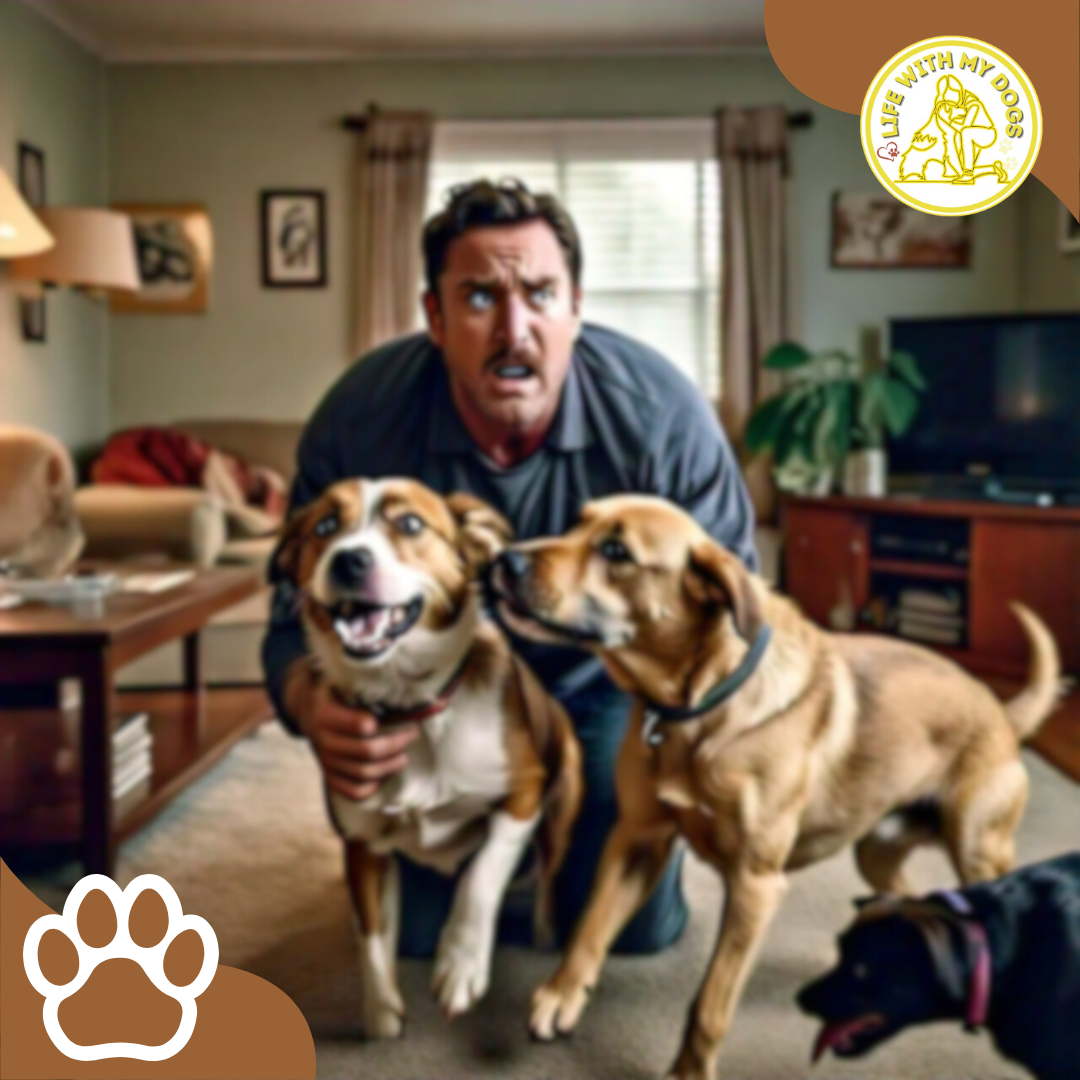
Making the Decision

Getting a second dog is a big choice. It can bring joy but also more work. Think about your reasons and weigh the good and bad points.
Reasons to Get a Second Dog
You might want a second dog to keep your first dog company. Dogs can get lonely when left alone. A buddy can help with this.
Some people get another dog to save a life. Adopting gives a home to a dog in need.
Your kids might ask for another dog. This can teach them more about pet care.
You may want a playmate for your active dog. Two dogs can run and play together.
Weighing the Pros and Cons
Getting a second dog means more love and fun. Your dogs can be friends and play together. They might feel less anxious when you’re away.
But it also means more work. You’ll have twice the poop to pick up. Vet bills will double. You’ll need to train and exercise two dogs.
Think about space. Do you have room for another dog? Consider time too. Can you give attention to both?
Money is important. Can you afford food, toys, and care for two dogs?
Your first dog’s feelings matter. Some dogs love company. Others prefer being alone. Watch how your dog acts around other dogs.
Getting a Second Dog: Wrapping Up Your Journey
In this article, we’ve explored the ups and downs of getting a second dog, from the joy of companionship to the extra responsibilities it brings. Adding a second dog can be a big step, and we’ve covered the commitment, preparation, financial aspects, and the bond-building involved.
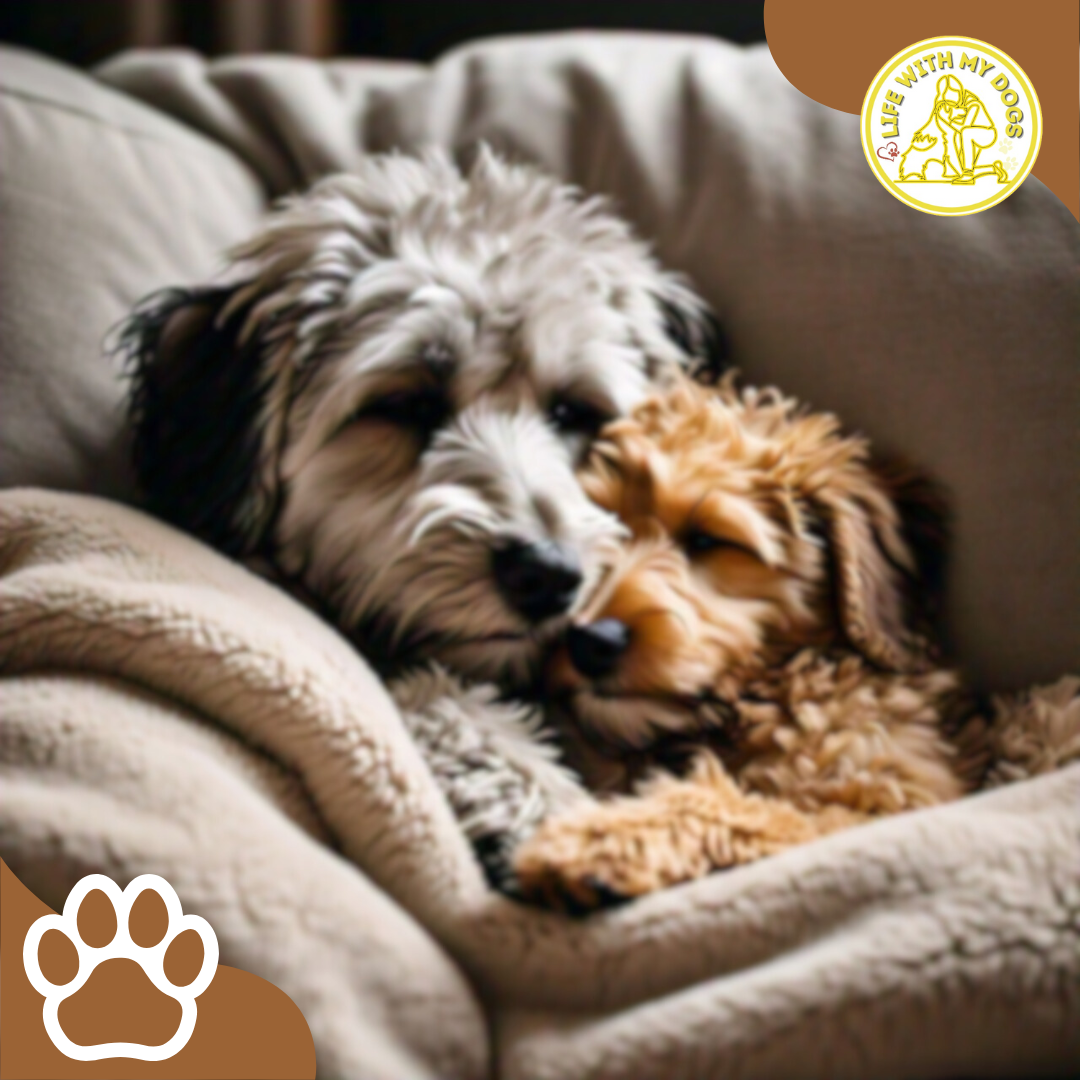
So, have you decided to welcome another furry friend, or perhaps you’re even considering a third? Whatever your choice, thank you for taking the time to read, and I wish you the best on your pet parenting journey.
If you’re ready to learn more or start this adventure, don’t forget to explore our other resources for guidance and tips on multi-dog homes!
Frequently Asked Questions

Getting a second dog brings joys and challenges. Here are some key things to think about before adding a furry friend to your family.
What should I consider before deciding to get a second dog?
Think about your time and money. Two dogs need more care, food, and vet visits. Make sure you can give both pets enough love and attention.
Your living space matters too. Do you have room for another dog? Will your landlord allow it if you rent?
How might adding a second dog to the family affect my current pet?
Your first dog may feel less anxious when you’re away. They’ll have a buddy to play with.
But some dogs get jealous. Watch how they act around other dogs first. Slow intros are best to help them get along.
What are some of the benefits of having two dogs versus one?
Two dogs can keep each other company. This may help with separation anxiety.
They can play together, which gives you a break. Plus, you get double the love and fun!
At what age is it ideal to introduce a second dog into the household?
Many say it’s best to add a second dog when your first is fully grown. This is often around 2-3 years old.
Puppies need lots of training. An older dog can help teach good habits.
How do I choose the right gender for my second dog to ensure compatibility?
Many experts suggest getting a dog of the opposite sex. This can help reduce fights over who’s the boss.
But personality matters more than gender. A calm dog might be best if your first dog is hyper.
What are some challenges I might face with two dogs and how can I address them?
Two dogs mean more work. You’ll clean up more messes and spend more on food and vet bills.
Training two dogs takes time. Use treats to reward good behavior. Be patient and give each dog one-on-one time.
Connect with Fellow Dog Parents!
Thinking about getting a second dog or want tips on raising multiple pups? Join us on social media, where we share content tailored for dog lovers like you! From product reviews to stories of life with multiple dogs, our pages are perfect for connecting with other pet parents.
| Platform | Content & Community Highlights |
|---|---|
| Join discussions on multi-dog households and see adorable pet photos. | |
| Get daily inspiration, training tips, and snapshots of multi-pet life. | |
| Explore dog care ideas, DIYs, and product recommendations. | |
| X | Follow us for the latest news, updates, and tips for life with dogs. |
| YouTube | Watch videos on everything from training two dogs to daily care routines. |
| Website | Visit for articles and resources on making the best choice for your family and pets. |
Follow us to find engaging content, tips, and a community that understands life with more than one dog!
